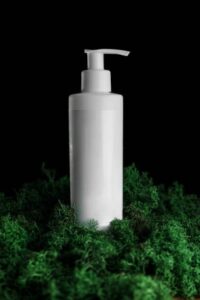In a market driven by sustainability, eco-friendly plant-based packaging is gaining popularity. It is an excellent alternative to plastic products and can be used for many purposes.
 Plant-based materials from renewable crops help reduce our dependency on finite fossil fuel reserves. These materials are cultivated with reduced carbon emissions, which aligns with global climate goals. For more plant-based packaging supplier, check this out!
Plant-based materials from renewable crops help reduce our dependency on finite fossil fuel reserves. These materials are cultivated with reduced carbon emissions, which aligns with global climate goals. For more plant-based packaging supplier, check this out!
Cost-effectiveness
Plant-based packaging is an eco-friendly alternative to traditional plastics. These materials are derived from natural biological sources and can be made from seaweed to corn, eliminating the need for fossil fuels. They also create fewer greenhouse gasses during production, making them an environmentally friendly choice for many industrial engineering applications.
In addition to being eco-friendly, plant-based products offer several cost benefits for manufacturers. These materials are often cheaper than traditional plastics and require fewer labour hours. They are also lighter, reducing shipping costs and storage space.
Additionally, these materials are often compostable, allowing them to be reused or put to good use. This can reduce landfill waste, minimize the impact on oceans and land, and prevent the accumulation of harmful microplastics. These factors make them a viable solution for various industries, including food and beverage, cosmetics, and pharmaceuticals.
Environmentally friendly
Plant-based packaging refers to plastics and other materials that are derived from natural sources, such as sugarcane or cornstarch. These are great options for consumers concerned about environmental impact and sustainability.
They also help reduce waste accumulation and promote a circular economy. Many plant-based materials, such as fast-growing crops, are biodegradable and come from renewable resources. They are also a sustainable alternative to fossil fuel-derived plastics. For more plant-based packaging supplier, check this out!
Consumers are increasingly demanding environmentally friendly packaging. Plant-based packaging can demonstrate a company’s commitment to environmental responsibility and building customer trust.
Furthermore, plant-based products are free from chemicals of concern, such as BPAs and phthalates. These products can be used for food packaging, pharmaceuticals, and other medical supplies. Moreover, eco-friendly packaging is often more cost effective than traditional packaging. Innovative technology brings new options to plant-based packaging, allowing it to perform various functions, including preventing microbial growth and managing moisture loss. This can improve product shelf life and ensure product safety.
Versatility
Plant-based packaging is gaining traction thanks to growing consumer demand for sustainable packaging materials and stricter government regulations on plastics. These materials are derived from renewable resources and can be made into many products. For example, Coca-Cola’s new PlantBottle is partially based on sugarcane. The bioplastics incorporated in the bottle are workable and durable, making them suitable for hot and cold foods.
Other companies are developing food packaging from biomass, such as corn starch, which replaces styrofoam trays and the ever-present yet non-recyclable plastic takeaway containers. Researchers have also produced a material that resembles styrofoam but is 100 per cent plant-based, which could be used to make reusable cups for beverages like beer, cider, fruit juices, and smoothies. For more plant-based packaging supplier, check this out!
Another option for beverage packaging is paperboard made from responsibly sourced wood fibres. These materials can be combined with polymers derived from sugarcane and other renewable sources.
Biodegradable
Unlike traditional plastics, biodegradable packaging is made from renewable sources and can be used repeatedly. This allows you to reduce your carbon footprint and lower your environmental impact. It is also safer for the environment because it doesn’t contain the harmful chemicals found in most regular plastic bags. In addition, it is free from allergens and toxins, making it suitable for food use.
Plastic waste has become a significant concern for the planet. It takes centuries to break down and can end up in ecosystems as microplastics. However, plant-based packaging is a promising alternative. These materials can be derived from sustainable, renewable resources and disposed of quickly and responsibly. They are also an excellent fit for the circular economy.
These eco-friendly packaging products are ideal for replacing polystyrene trays and non-recyclable plastic takeaway containers. Be Green Packaging offers many options, including clear bioplastic cups. These cups are compostable and biodegradable and can be used for beer, cider, smoothies, and other drinks. They are also available in many sizes, including pint cups.
